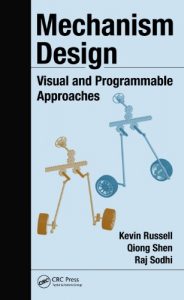In the field of mechanism design, kinematic synthesis is a creative means to produce mechanism solutions. Combined with the emergence of powerful personal computers, mathematical analysis software and the development of quantitative methods for kinematic synthesis, there is an endless variety of possible mechanism solutions that users are free to explore, realize, and evaluate for any given problem in an efficient and practical manner.
Mechanism Design: Visual and Programmable Approaches provides a broad introduction to kinematic synthesis, presenting and applying motion, path, and function generation methodologies for some of the most basic planar and spatial single and multi-loop linkage systems. This work provides numerous in-chapter synthesis examples and end-of-chapter synthesis problems. Users can also invent their own specialized synthesis problems according to their particular interests.
The commercial mathematical software package MATLAB® and its mechanical system modeling and simulation module SimMechanics® are thoroughly integrated in this textbook for mechanism synthesis and analysis. The reader is therefore enabled to readily apply the design approaches presented in this textbook to synthesize mechanism systems and visualize their results. With this knowledge of both kinematic synthesis theory and computer-based application, readers will be well-equipped to invent novel mechanical system designs for a wide range of applications.






